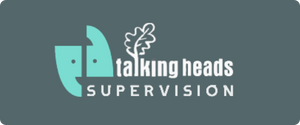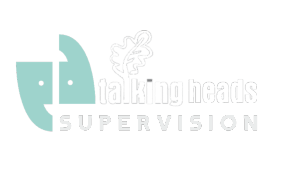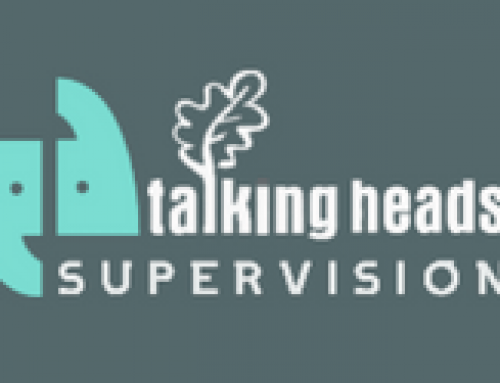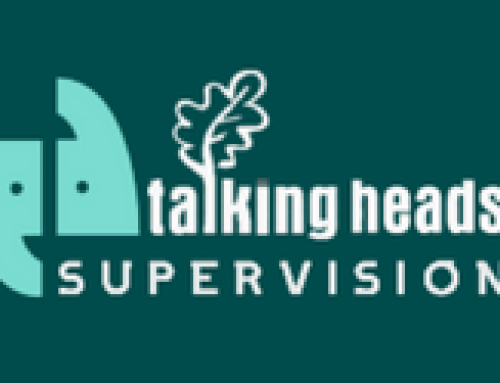Spotify Link
EPISODE NOTES
In this episode, Claire talks with Lisa Lea-Weston: a drama therapist and the founder of Talking Heads.
As a child, Lisa wanted to be an actor and went on to study drama in London. It was during her time at university that she decided she would go on to study to be a drama teacher. However, during a holiday job where Lisa supported children to access mainstream play schemes, she changed her mind and, instead, turned to working with children and young people with learning disabilities. This helped her learn more about inclusion and welcoming differences.
At that time, Lisa’s manager saw how she interacted and engaged with young people who, for example, had severe autism. Lisa supported them, facilitated their play and engagement with others, and it was here where Lisa decided on a different career. Finishing her drama degree, Lisa then trained to become a drama therapist. Reflecting on the holidays where she had spent time supporting children in the play-schemes, Lisa says it shaped and informed a lot of what she does now in her current role.
KEY TAKEAWAYS We all partake in ‘mirroring’, whether we realise it or not. Lisa discusses ‘mirroring,’ both from an initial mother:baby bond, but also from the viewpoint that it continues throughout our lives. The way we might finish someone’s sentences, the way we adopt a similar way of sitting, for example, and how we might intentionally use their voice to make an attachment. As a drama therapist, Lisa is very conscious about what the other person is doing so that she can get alongside them, perhaps mirror her client’s movements, and also repeat some of what they have said.
‘Supervision’ – a distinct and powerful way of working. Whilst there are similarities to coaching and mentoring, ‘supervision’ isn’t time limited, it’s not for a particular purpose and there isn’t necessarily an end point. Supervision provides a safe space where clients can talk about work: it’s their agenda and there isn’t an expected outcome other than what they might take that needs resolving. Regular sessions help provide Lisa’s clients with an ‘internal supervisor’. That is, the tools and strategies that will help people get through challenging moments and allow them to identify what the issues are that are upsetting and de-stabilising them. ‘Supervision’ plays a part in a successful life/work balance. Despite the natural reaction of being ‘too busy’ to participate in supervision, it can have such a significant effect on people’s wellbeing. These are the exact times when we do need supervision. Rather than feeling really stressed, overwhelmed and working less effectively, supervision provides a place where you explore ‘clearing’, evaluate your workload and it allows you to go back to work and be really effective and focused.
BEST MOMENTS
“If you think of psychology or counselling, then [drama therapy] is that – you go because something inside of you is in distress, but the language that is available to you isn’t just talking, [it’s also] the creative language, which we all have, and that absolutely includes people with a profound and multiple learning disability…”
“When people get freaked out about drama therapy, which they do and [say] ‘I can’t act’, in 20 years I can still recall the times I’ve used role-play. I don’t use it very often. That’s partly because of the people that I work with because it’s not accessible to them as a language of creativity, but there’s an entire other world of projective play, stories, music, movement, mirroring, connection, achievement, attachment that is available to us and, really, if you unpick any therapeutic relationship, those are the key components and the talking aspect is only another 30% maybe, of what happens in a therapy room. The rest, anyway, is a non-verbal kind of relationship.”
“Mirroring is absolutely the first thing that happens when a baby is born, the first thing that mother and child do is to look at each other. It’s so entirely natural. A lot of us don’t realise we do it. The baby makes a noise and the mum’s eyes widen with delight. Then [the baby’s] eyes widen and mum will mirror back whatever sounds the baby makes, and that’s mirroring. A baby is so rewarded by that, what the mum does, that they gradually go on to do it again and again and it will wave its arm and the mum will catch its thumb and then you’ve got that touch attachment. The mum will stroke and soothe the baby when it’s crying, so all of that is about mirroring and it’s absolutely vital to healthy development, absolutely healthy.”
“The beginning of ‘mirroring’, as adults, is being aware what’s happening with ‘the other.’ It’s really important for a teacher to be able to immediately pick up on the mood of her class in the morning and then, if they’re very heightened, knowing what you need to be [doing], somehow acknowledging that, but not joining it. So, wondering how you get alongside it, it might be doing some kind of movement at the beginning of class that gets their attention without using their voice but you’ve got to get alongside it, so you need to be conscious and then find a way to mirror back an understanding to your class. Then you’re going to have their attention.”
“Supervision is where you bring all of who you are at work to your supervisor to talk about your practice, to talk about your work for the purpose, ultimately, of being ethical and accountable but not in the way that schools are used to. So we’re not talking Ofsted, we’re not talking a 1:1 supervision in the corridor where someone’s judging you and there’s a hierarchical element, it’s none of that. It’s absolutely a confidential shared space.”
“The important thing about supervision is that it’s a process of regularly checking in with someone who knows you or gets to know you really, really well for the purpose of being safe, for children and young people. That’s it, fundamentally, but without any tick-boxing or ‘Ofsted-y’ outcomes needed other than checking in deeply and processing and having time to think about ‘How am I at work, and if I am or aren’t OK, what does that mean for the school and it’s culture?”
“[Ideally there would be] an expectation that if you work in safeguarding that you have ‘supervision’ and yet it’s not really. It’s increasing, but it’s not commonplace in education. The emotional weight of work – in order for it to be tolerated – you need to have that space where you can clear the build-up to keep on working, otherwise you become too full really quickly.”
“In twenty years, there’s probably barely been a month, or even two weeks, of my life that I haven’t also been a ‘supervisee’. I go to supervision regularly. And I don’t go to supervision because I’m not any good at my job or I don’t know what I’m doing. I go because ‘A’ I don’t want to get really full and then ‘B’, in order to remain absolutely available and able to listen and be with whatever someone brings me, I need to have done my own processing, growing and reflecting and clearing because I also sometimes get overwhelmed and stressed and I need my own supervision.”
“Recognise the load that you’re carrying. Take it outside. Go walking with it. Get it moving. Something that is overwhelming needs energy and the actual physical movement of the body helps to process something and if you’re on your own then that’s a very good start. Make that commitment to yourself to realise that you are overloaded and to do something about it, even if it’s ‘diary-ing’, three times a week, to go for a walk with yourself, that would be huge.”
VALUABLE RESOURCES
Oak Practice: https://oakpractice.co.uk/
Lisa Lea-Weston – Facebook: https://www.facebook.com/TalkingHeadsOak
Lisa Lea-Weston – Twitter: https://twitter.com/TalkingHeadsOak
Lisa Lea-Weston – Instagram: https://www.instagram.com/talkingheadsoak/
Lisa Lea-Weston – LinkedIn: https://www.linkedin.com/in/oakpractice/
Leeds-Beckett university hub for supervision: https://www.leedsbeckett.ac.uk/carnegie-school-of-education/national-hub-for-supervision-in-education/
Co-authored book ‘Trauma in the Creative and Embodied Therapies’: https://www.routledge.com/Trauma-in-the-Creative-and-Embodied-Therapies-When-Words-are-Not-Enough/Chesner-lykou/p/book/9781138479210
Classroom Secrets Kids: https://kids.classroomsecrets.co.uk
The Teachers’ Podcast: https://www.facebook.com/groups/TheTeachersPodcast/
Classroom Secrets Facebook: https://www.facebook.com/ClassroomSecretsLimited/
Classroom Secrets website: https://classroomsecrets.co.uk/
LIFE/work balance campaign: https://classroomsecrets.co.uk/lifeworkbalance-and-wellbeing-in-education-campaign-2019/



